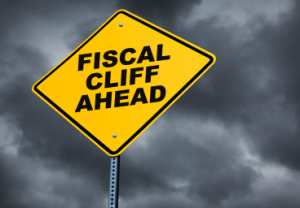Fiscal Cliff Threatens Environmental Protections That Voters Supported
 Americans elected clean energy and clean air champions up and down the ticket last week. Even though oil, gas, and coal companies spent more than $270 million on campaign ads in the past two months, the majority of people rejected their dirty agenda. Voters want healthy air and safe drinking water, not more pollution.
Americans elected clean energy and clean air champions up and down the ticket last week. Even though oil, gas, and coal companies spent more than $270 million on campaign ads in the past two months, the majority of people rejected their dirty agenda. Voters want healthy air and safe drinking water, not more pollution.Our leaders should keep this in mind as they negotiate a way off the fiscal cliff as Congress reconvenes this week. If Congress fails to reach an agreement, automatic, across-the-board spending cuts would kick in, making it much harder for the government to deliver the health and environmental protections people value.
We would feel these punishing cuts in our daily lives. Imagine if the sewage treatment plant in your community didn’t pay for repairs and had to start dumping raw sewage into nearby beaches. Or imagine if you traveled to a National Park for an affordable family vacation and discovered the visitor center was shuttered and the campgrounds closed down. Or imagine if air monitoring stations in your city ran out of funding and it became harder to tell when it was safe for children to play outside or when asthma-causing pollutants were running high.
Our country’s budget deficit is a serious problem, but crippling programs Americans count on is not the answer.
The natural resources section of the budget—including programs protecting our air, water, lands, and parks—makes up only 1.4 percent of federal spending. Their funding has already been cut, since most efforts to control the budget so far have concentrated disproportionately on discretionary spending. Slicing too deeply into programs that have already taken a hit would be both harmful for the environment and unproductive for deficit reduction.
America can get on a path to deficit reduction without making our air dirtier or our water unsafe to drink. To achieve this goal, Congress must negotiate a deal that prevents automatic budget cuts from taking place. Congress needs to take a balanced approach in such a deal. That means revenue increases need to be an important part of any solution. The president has been very clear on that point, and he is right to make it a condition for any deal.
One part of raising revenues should be ending the practice of favoring mature oil and gas corporations—among the richest in the world—with billions of dollars in subsidies. Our tax policies should be helping companies install new clean energy technology across the country. Congress should extend the very successful production tax credit for wind energy, which has broad bipartisan support.
Congress is facing a fundamental choice about the kind of country America is going to be. Some GOP lawmakers would use the genuine need to cut the deficit as a cover for shrinking the size of government and destroying environmental programs and safeguards.
But President Obama and many other leaders believe government has a legitimate role to play in creating a vibrant society and a healthy environment. Last week’s election repudiated the anti-government, budget-shredding agenda in favor of more balanced, sustainable approach. Congress should heed these results.
You can return to the main Market News page, or press the Back button on your browser.

